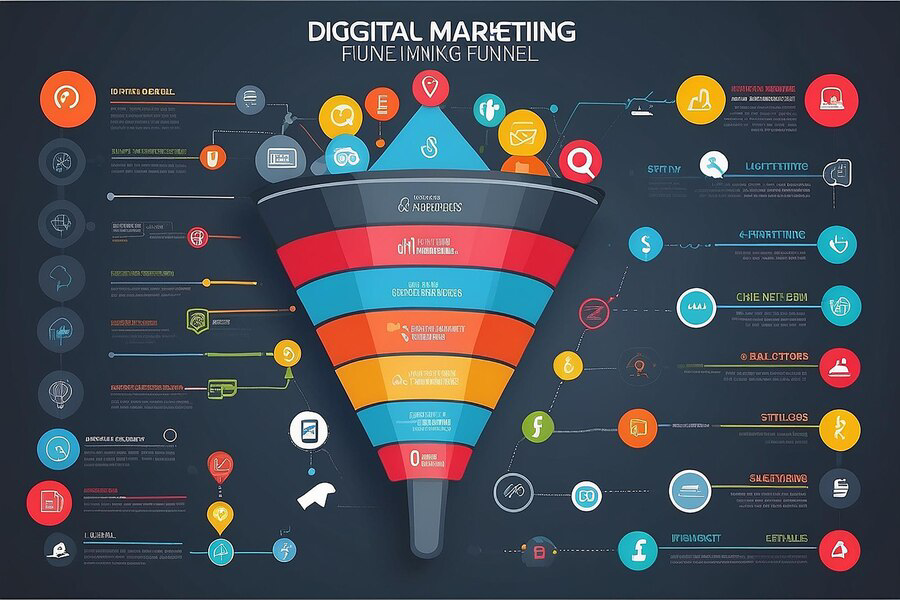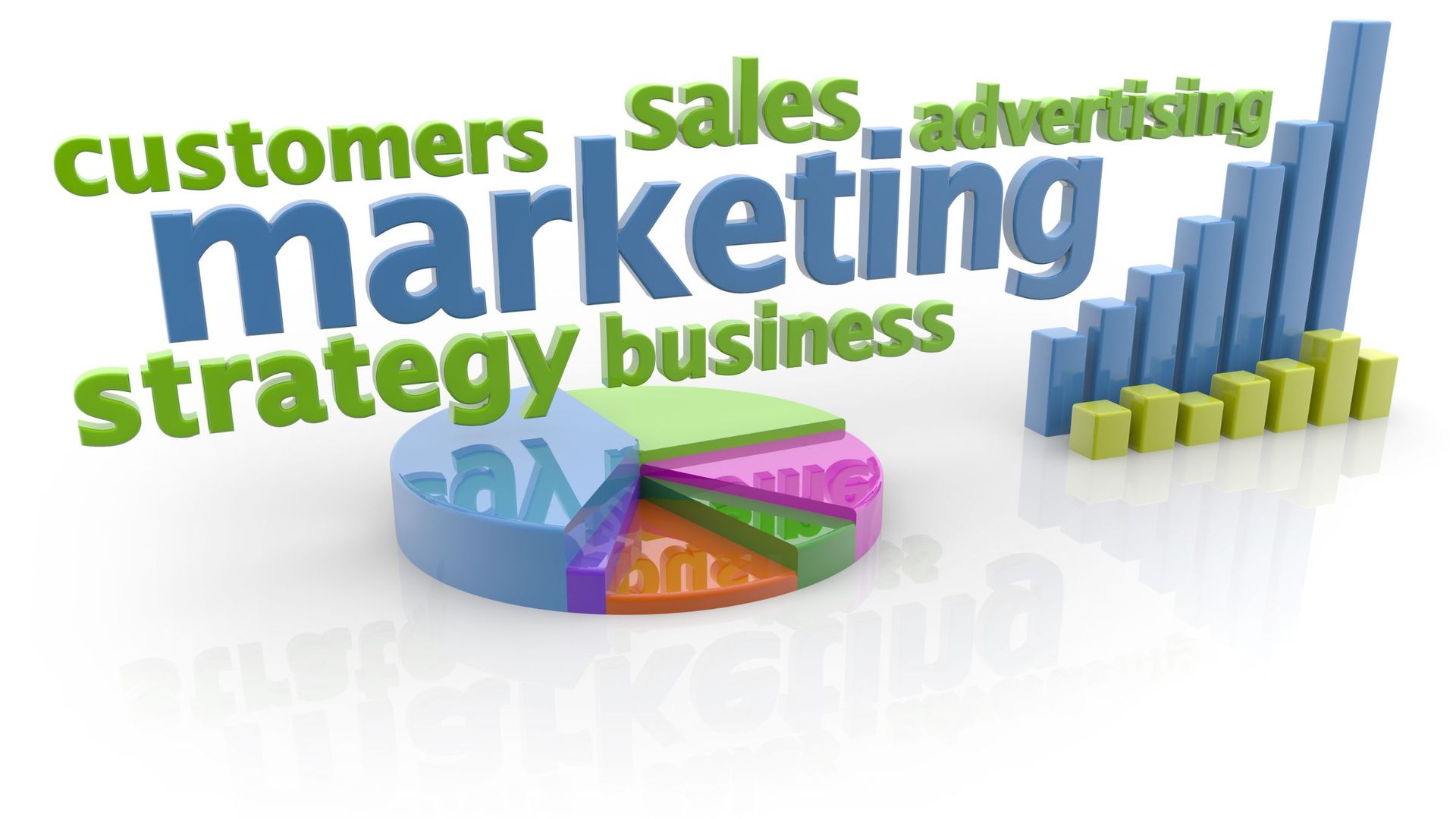Effective Digital Marketing Strategies for E-commerce
In today's competitive digital landscape, mastering effective marketing strategies is crucial for e-commerce success. With countless online stores vying for consumer attention, standing out demands strategic finesse and innovation. From leveraging social media platforms to harnessing the power of SEO and email marketing, the avenues for reaching and engaging potential customers are diverse and dynamic. Effective digital marketing for e-commerce hinges on understanding your target audience's behaviors and preferences. By crafting compelling content that resonates with their needs and desires, businesses can cultivate strong brand identities and foster customer loyalty. Moreover, employing data-driven approaches such as analytics and A/B testing enables continuous refinement and optimization of
marketing efforts, ensuring maximum return on investment (ROI). In this blog series, we will explore actionable strategies and proven techniques that e-commerce businesses can implement to not only survive but thrive in the ever-evolving digital marketplace.
Harnessing the Power of SEO in E-commerce: Tips for Better Search Engine Visibility
In the competitive landscape of e-commerce, achieving better search engine visibility is crucial for driving traffic and increasing sales. Search Engine Optimization (SEO) plays a pivotal role in ensuring that your online store is discoverable by potential customers searching for products or services like yours. To harness the power of SEO effectively, e-commerce businesses must implement strategic tactics that align with search engine algorithms and user intent. This blog explores essential tips and techniques to enhance your e-commerce website's SEO performance, ultimately leading to improved rankings and increased organic traffic.
Conduct Comprehensive Keyword Research
Begin by researching and identifying relevant keywords that potential customers are using to search for products in your niche. Tools like Google Keyword Planner, SEMrush, or Ahrefs can help you discover high-volume keywords with manageable competition. Focus on long-tail keywords that are specific to your products or services, as these often have higher conversion rates and lower competition. Incorporate keywords naturally into your product descriptions, category pages, blog posts, and meta tags to optimize your e-commerce site for search queries.

Optimize Product Descriptions and Metadata
Write unique and compelling product descriptions that not only describe the features and benefits but also include relevant keywords naturally. Optimize meta titles and descriptions for each product page, ensuring they are concise, descriptive, and include primary keywords to improve click-through rates from search engine results pages (SERPs). Utilize schema markup to enhance visibility in search results and provide search engines with structured data about your products, such as reviews, pricing, and availability.
Improve Website Speed and Mobile Responsiveness
Page speed is a critical ranking factor for both desktop and mobile searches. Use tools like Google PageSpeed Insights to identify and fix issues that may be slowing down your site. Ensure your e-commerce website is mobile-friendly and responsive, as mobile searches account for a significant portion of online shopping traffic. Optimize images and videos to reduce file sizes without compromising quality, improving overall site performance.
Create High-Quality Content for SEO
Develop a content strategy that includes informative blog posts, buying guides, tutorials, and other types of content that align with your target audience's interests and search queries. Incorporate relevant keywords naturally within your content while focusing on providing value and solving customer problems. Regularly update and optimize content to keep it fresh and relevant, which can help improve your site's authority and rankings over time.
Build High-Quality Backlinks
Earn backlinks from reputable and relevant websites within your industry to boost your ecommerce site's authority and credibility. Focus on quality over quantity when acquiring backlinks, as links from authoritative sites carry more weight in search engine algorithms. Utilize outreach strategies, guest blogging, and partnerships to attract natural backlinks from influencers and industry thought leaders.
Email Marketing Strategies That Drive E-commerce Success
Introduction: In the fast-paced world of e-commerce, where customer engagement and retention are key to sustained success, email marketing remains a powerful tool. Effective email marketing strategies can help e-commerce businesses nurture relationships with customers, drive sales, and increase repeat purchases. This blog explores essential email marketing strategies specifically tailored for e-commerce, providing actionable tips to help you leverage this channel effectively and achieve measurable success.
Segment Your Email List Strategically
Begin by segmenting your email list based on demographics, purchase history, browsing behavior, and engagement levels. Use segmentation to personalize your email
content and offers, delivering relevant messages that resonate with each segment. Implement dynamic content blocks within emails to customize product recommendations and promotions based on individual customer preferences.
Personalize Email Content and Offers
Personalization goes beyond using a subscriber's first name. Tailor email content based on past purchases, abandoned carts, and browsing behavior to increase relevance. Use dynamic email content to showcase recommended products, personalized discounts, and exclusive offers that align with each customer's interests. Leverage behavioral triggers such as birthdays, anniversaries, or milestones to send personalized messages and offers, enhancing customer loyalty.
Implement Automated Email Workflows
Set up automated workflows such as welcome emails, abandoned cart reminders, order confirmations, and post-purchase follow-ups. Use workflow automation to deliver timely and relevant messages without manual intervention, improving efficiency and effectiveness. Optimize workflows based on performance metrics like open rates, click-through rates, and conversion rates to maximize engagement and sales.
Craft Compelling Subject Lines and Email Copy
Create attention-grabbing subject lines that are clear, compelling, and relevant to increase email open rates. Keep email copy concise, informative, and focused on the benefits to the recipient. A/B test subject lines, email layouts, and calls to action (CTAs) to identify what resonates best with your audience and optimize performance accordingly.
Leverage User-Generated Content and Reviews
Incorporate user-generated content (UGC) such as customer reviews, testimonials, and photos into your email campaigns to build trust and social proof. Feature customer success stories or case studies that demonstrate the value and benefits of your products or services. Encourage customers to share their experiences and feedback through email surveys or reviews, which can be used to improve products and services while fostering community engagement.
Paid Advertising Tactics for E-commerce: PPC, Display Ads, and Beyond
Paid advertising is a vital component of e-commerce marketing strategies, offering targeted reach and immediate visibility to potential customers. This blog explores effective paid advertising tactics, focusing on PPC (Pay-Per-Click), display ads, and other strategies that e-commerce businesses can leverage to drive traffic, increase conversions, and maximize ROI.
- Understanding PPC (Pay-Per-Click) Advertising: PPC campaigns allow businesses to bid on keywords relevant to their products or services and pay only when their ad is clicked. Use tools like Google Ads and Bing Ads to create targeted campaigns that reach potential customers actively searching for products.
- Harnessing Display Advertising: Display ads appear on websites within Google's Display Network (GDN) and other ad networks, reaching a broader audience beyond search engine results. Utilize visual elements such as images, videos, and interactive content to attract attention and engage users.
- Retargeting Strategies: Retargeting (or remarketing) ads target users who have previously visited your website but did not make a purchase. Use cookies and pixel tracking to deliver personalized ads that remind visitors of products they viewed, encouraging them to return and complete their purchase.
- Shopping Ads (PLAs - Product Listing Ads): Shopping ads showcase product images, prices, and descriptions directly within search engine results, making them highly visible and engaging. Optimize product feeds and titles to improve ad relevance and performance in Google Shopping campaigns.
Conclusion
Mastering effective digital marketing strategies is crucial for any e-commerce venture aiming to thrive in today's competitive landscape. By leveraging a tailored approach that incorporates SEO, PPC advertising, content marketing, and social media engagement, businesses can enhance their online visibility, attract targeted traffic, and ultimately boost sales conversions. Continuous monitoring and adaptation to trends and consumer behavior are key to sustaining success in the dynamic digital sphere.
At Ideation Digital Marketing, we specialize in crafting personalized digital marketing solutions designed to propel your e-commerce business forward. Whether you're just starting or looking to revamp your existing strategies, our team in Charleston, WV, is dedicated to delivering measurable results. Contact us today at (304) 814-2445 to discuss how we can collaborate to maximize your online presence and achieve your business goals. Let's embark on a journey to unlock your e-commerce potential together!












